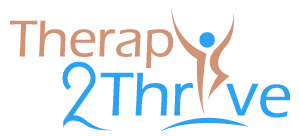Therapy2Thrive™
BLOG
925-998-3392
Forgiveness – should we do it
As human beings, we are bound to hurt and be hurt. It’s part of life and can’t be avoided. So, why can it be so difficult to forgive ourselves and others? And why should we?
It’s a common misconception that forgiving means condoning an event. Forgiveness doesn’t necessarily have to lead to reconciliation. Instead, forgiveness can mean accepting what happened and actively deciding to let go of resentment. Forgiveness is about taking back control.
Forgiveness can be a purely selfish act with the singular goal of freeing the forgiver’s mind. Of course, forgiveness can also be a gesture designed to free the other person’s mind from guilt.
Alcoholics Anonymous (A.A.) 12 steps process teaches us that sobriety is impossible without letting go of resentment. Forgiveness can bring healing to others and oneself.
By forgiving, we can free our minds from ruminating about the past to focus on living in the present moment. This mindfulness has been proven to increase a person’s happiness. In addition, unforgiving can be detrimental to your physical and mental health.
According to the Mayo Clinic, the benefits of forgiveness can include[2]:
- Healthier relationships
- Improved mental health
- Less anxiety, stress and hostility
- Lower blood pressure
- Fewer symptoms of depression
- A stronger immune system
- Improved heart health
- Improved self-esteem
If you would like to let go of resentment towards another person or yourself but aren’t sure how to go about it, here are 5 steps you can take towards forgiveness:
1. Be angry and grieve for as long as you need. Allow yourself to feel all of your emotions.
2. Explore the pros and cons of holding onto your grudge versus moving on from it. Here are some questions you could ask yourself: how important is it for you to repair the relationship? What do you gain from being the victim? Would you rather be right or be happy?
3. Accept that humans are inherently flawed. Consider the situation from the perspective of the other person. Do you find yourself making any assumptions?
4. Consider what the best outcome is you can hope for if you were able to forgive? Explore what forgiving would feel like and how it would affect your life. Some ways to do this could include writing in a journal, praying or using guided meditations.
5. Decide if you are ready to forgive. If the answer is yes, decide if you would like to forgive quietly or let the other party know that you have forgiven them. For example, some people write a letter to the person they forgive and then destroy it, some people send the letter, others forgive in their thoughts or by sharing their decision with a friend. But sometimes we can’t forgive or are not ready just yet and that is okay too.
“When we hold onto grudges and resentment, it’s like drinking poison and expecting the other person to get sick”.
Angela Buttimer, MS, NCC, RYT, LPC, at Piedmont Healthcare.[1]

Forgiveness is a very personal process and only you can know if forgiveness is right for you. The research clearly shows that holding onto resentment can be harmful to a person’s physical and mental health. As human beings, we need interpersonal connections to thrive and live a full life —repair is a natural part of healthy relationships.
Consider forgiveness if a grudge has been keeping you from enjoying the here-and-now. It might just lighten the load you are carrying and put a new spring in your step.
Sources:
Piedmont Healthcare. What does holding a grudge do to your health? Retrieved from
https://www.piedmont.org/living-better/what-does-holding-a-grudge-do-to-your-health
Mayo Clinic. Forgiveness: Letting go of grudges and bitterness. Retrieved from:
https://www.mayoclinic.org/healthy-lifestyle/adult-health/in-depth/forgiveness/art-20047692
[1] What does holding a grudge do to your health? Piedmont Healthcare. Source:
https://www.piedmont.org/living-better/what-does-holding-a-grudge-do-to-your-health
[2] Forgiveness: Letting go of grudges and bitterness.
https://www.mayoclinic.org/healthy-lifestyle/adult-health/in-depth/forgiveness/art-20047692
Therapy2Thrive™ brings Hope for Healing
Our counselors at Therapy2Thrive™ provide compassionate, practical, and evidenced based practices to assist you in the therapeutic process to meet your goals and find hope to heal the challenges you are facing.
Contact our family counselor in Pleasanton for private consultation.
